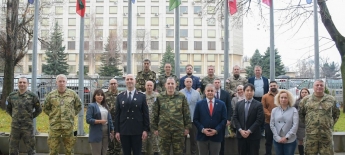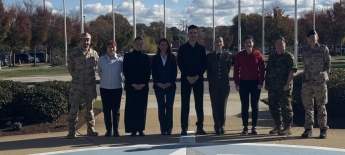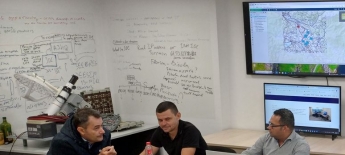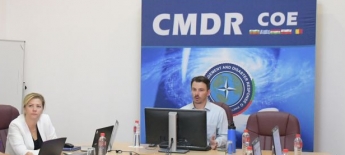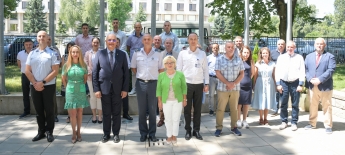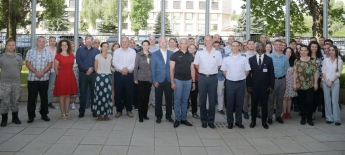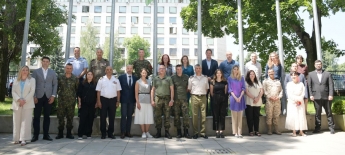Looking Back on the Very Beginning
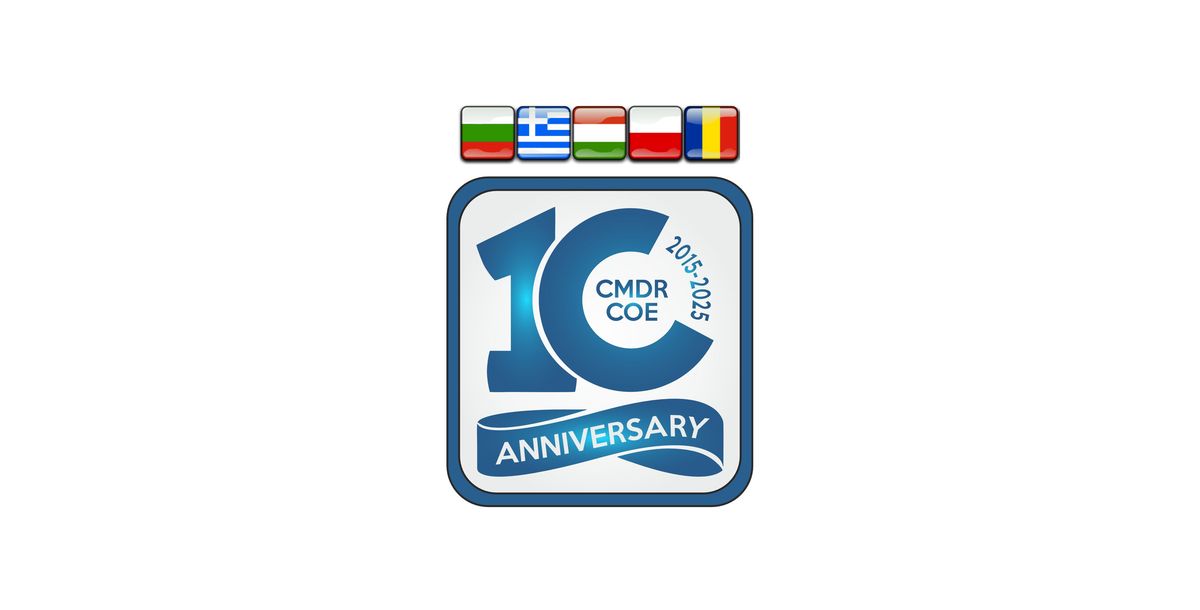
Date: (31-03-2025)
NATO's Centres of Excellence are international military organisations that are designed to provide education and training, assistance in doctrine development, lessons learned, and to support NATO to improve interoperability and defence capabilities, to test and validate concepts through experimentation. The process of development the Alliance centres significantly accelerated with Smart Defence initiative, declared at the NATO summit in Chicago, May 2012. The main objective of this approach was development of specialised expert entities in NATO that support the Alliance transformation with avoiding duplication of nations’ existing efforts, means, resources and capabilities.
NATO’s Centres of Excellence are international military organisations that are designed to provide education and training, assistance in doctrine development, lessons learned, and to support NATO to improve interoperability and defence capabilities, to test and validate concepts through experimentation. The process of development the Alliance centres significantly accelerated with Smart Defence initiative, declared at the NATO summit in Chicago, May 2012. The main objective of this approach was development of specialised expert entities in NATO that support the Alliance transformation with avoiding duplication of nations’ existing efforts, means, resources and capabilities.
In 2011, the Bulgarian Ministry of Defence initiated a project of development an expert entity, designed to assist national institutions and to provide specialised expertise for NATO nations in area of crisis management and disasters response. The project started with the establishing of a working group for development a Centre for high level of competences. The group was tasked to define an appropriate functional area and name of the Centre, to develop drafts of vision, plan and financial assessment of the project, and later on to develop a draft Concept of the Centre. The name of “Crisis Management and Disaster Relief” was contrived at that time. At the end of the 2011, the internal process of coordination was finished and the draft strategic documents for further establishing of the Centre was developed and deconflicted institutionally by Colonel Prof. Mitko Stoykov. The project was used to promote the Bulgarian MOD initiative at all possible levels of NATO, like Concept Development and Education, and Transformation Conferences, international visits and conversations. The process of deconflicting with other similar NATO entities was time consuming, prolonged up to six month.
On March 22, 2012, in accordance with the established NATO procedures for the construction of the centres, a team for the implementation of the project was established by order of the Bulgarian Minister of Defence. Taking into account the opinions of NATO Headquarters, the Joint Staff, member states and NATO centres, a second version of the Centre’s concept was developed.
The Centre was established as an independent legal entity under Article 60 of the Administration Act and a secondary budget appropriations officer under the Bulgarian Minister of Defence with Decree of the Council of Ministers No. 291/16.11.2012 (published in the State Gazette on 23.11.2012). The First Conference on the Establishment of the Centre was planned and held as results were agreed version of the Centre Concept, considered versions of the Centre’s Operational and Functional Memorandums of Understanding, proposed versions of job descriptions of the participating countries.
The Second Conference was held from March 25-27, 2013 where a support was received by the Hellenic Republic and the Republic of Poland to become the Centre’s Sponsoring countries as well as variants of the Operational and Functional Memoranda of Understanding have been agreed upon and future activities for the construction of the Centre and a time frame for their implementation until its accreditation by NATO have been identified.
NATO Partner countries also expressed increased interest in the implementation of the project (Austria, Sweden, Georgia, Ukraine, N.Macedonia, etc.). In response to questions raised by them in the NATO Military Committee, the Centre was presented at a meeting of the committee in the Euro-Atlantic Partnership Council (EACP) format on May 28, 2013. On May 27, 2013, the project was presented to the Working Group of the EU Military Committee, which requested that Bulgaria, after accreditation, provide the Centre to support the development of EU capabilities. In order to avoid duplication and competition in crisis management and disaster response capabilities between NATO and the EU, a questionnaire on the Centre’s activities in the field of training and preparation was completed and sent at the request of the EU. Contacts with NATO and EU structures continue to identify additional opportunities for cooperation and interaction.
Activities for the construction of the Centre and deadlines for their implementation:
• Continuation of talks with ministries and departments in the country for the accession of their experts to the centre – Ministry of Interior, Ministry of Transport and Communications, Ministry of Justice, Ministry of Regional Development and Public Works, Ministry of Public Works and Public Works, and others.
• National ratification of the Memorandums of Understanding for each of the Centre’s sponsoring countries (Bulgaria, Greece, Poland) – completed at the end of July 2013;
• Preparation and submission of a self-assessment of the Centre for the beginning of its accreditation – completed by the end of June 2013;
• Familiarization of the Allied Command Transformation with the self-assessment and its adoption – by mid- October 2013;
• Organization and holding of a ceremony for the official signing of the Memoranda of Understanding by the sponsoring countries of the Centre – 28.08. 2013;
• Organization and holding of the meeting of the Centre’s Management Board and visit of the NATO accreditation team – 11-12.09. 2013;
• Holding meetings and preparing interdepartmental agreements for filling expert positions by interested ministries and organizations from the country – by the end of October 2013;
• Presentation of a report by the ACT to the NATO Military Committee and a proposal to the NATO North Atlantic Council (NAC) to approve the accreditation of the Centre – by the end of October 2013.
• Decision by the NAC to grant the status of an International Military Organization – November -December 2013
After the Centre’s accreditation is completed, due to the extremely strong interest from the Partners, the preparation and conclusion of Technical Agreements with partner countries wishing to join it will begin.
Nevertheless of all effort and results, including agreement between Bulgaria and ACT, in September 2013, the new MOD leadership withdrew its support for Bulgaria’s unwillingness to build a NATO centre on its territory. A number of administrative tricks and obstacles were used to erase the hard-won achievements. In early 2014, the Ministry of Defence decided to change the status of the Centre, make it part of the Military Academy and lower the level of the expert positions. As a result, most of the appointed personnel with extremely high expertise left the Centre forever. After the change of MOD political leadership the following year, the project to build the CMDR COE was restarted.
News
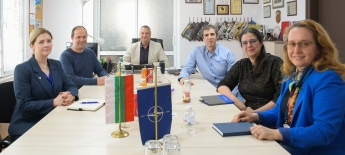 Pioneering Partnerships in Crisis Management and Aviation Meteorology
Pioneering Partnerships in Crisis Management and Aviation MeteorologyCMDR COE and BULATSA Explore Synergies to Address Climate Challenges and Enhance Flight Operations Safety
» read more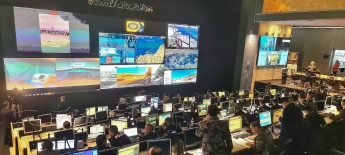 Strengthening Crisis Preparedness: Insights from "Darb al-Aman 4"
Strengthening Crisis Preparedness: Insights from "Darb al-Aman 4"A National Emergency Exercise in Jordan Unites Over 3,500 Participants to Tackle Traditional and Modern Threats
» read more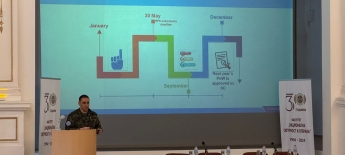 Fruitful cooperation with the Bulgarian National Defence College
Fruitful cooperation with the Bulgarian National Defence CollegeCMDR COE’s expert participated in the annual visit of the NATO Defense College′s Senior Course.
» read more A strategic thinking for crisis response
A strategic thinking for crisis responseCourse on Strategic Decision-Making for CRO, 25-29 Nov 2024
» read more 27th Environmental protection (EP) Working Group
27th Environmental protection (EP) Working GroupCMDR COE representatives took part in the 27th EPWG, conducted from 20 to 22 November 2024 in the NATO HQ in Brussels.
» read more NITEC and IPB conferences
NITEC and IPB conferencesFrom 19–21 November 2024, the Education Training Programmes and Plans (ETPP) division of the Multi-Domain Force Development Directorate (MDFD/ACT) successfully organized and conducted the annual NATO Individual Training and Education Conference (NITEC) and the NATO ITEP Planning Board (IPB) Conference.
» read more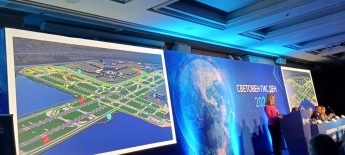 World Geographic Information Systems (GIS) Day
World Geographic Information Systems (GIS) DayCMDR COE representatives participated to the largest GIS event.
» read more Online conduct of the GFP course
Online conduct of the GFP courseThe CMDR COE welcomed virtually a group of military and civilian learners to the NATO-approved Gender Focal Point course (GFPC).
» read more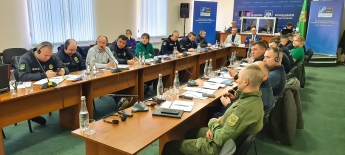 Strategic Leadership Workshop Enhances Moldova′s Border Security
Strategic Leadership Workshop Enhances Moldova′s Border SecurityInternational Collaboration and Crisis Management Strategies Foster Regional Stability and EU Integration Efforts
» read more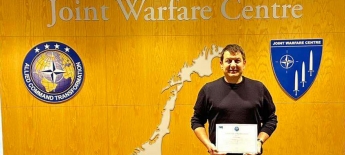 Playing largest CAX/CPX of 2024
Playing largest CAX/CPX of 2024Steadfast Duel 2024 computer-assisted command post exercise
» read more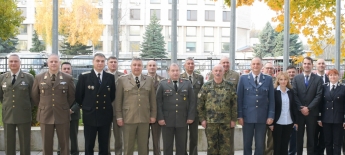 CMDR COE Steering Committee (SC) meeting
CMDR COE Steering Committee (SC) meetingThe 12th CMDR COE SC was conducted from 30 to 31 October 2024.
» read more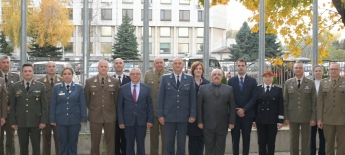 CMDR COE Academic Advisory Board (AAB) meeting
CMDR COE Academic Advisory Board (AAB) meetingOn 29 October 2024 in Sofia was held the 5th CMDR COE Academic Advisory Board meeting.
» read more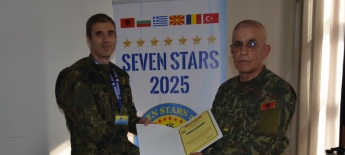 Participation to the Planning Conference of Exercise SEVEN STARS 2025
Participation to the Planning Conference of Exercise SEVEN STARS 2025On 24 and 25 October 2024, CMDR COE representatives Colonel Lazarov and Lieutenant Colonel Aleksandrov visited South-Eastern Europe Brigade (SEEBRIG).
» read more 25th World GIS Day
25th World GIS DayNATO and leading international experts arrive in Sofia for the 25th World GIS Day.
» read more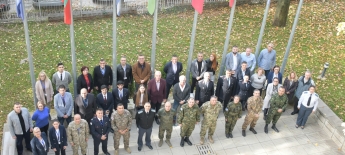 Completed NATO-Approved CMDR course
Completed NATO-Approved CMDR courseWe are thrilled to announce the successful completion of our NATO-Approved Crisis Management and Disaster Response course!
» read more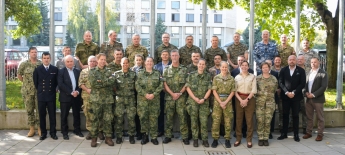 Hosted Staff Officers Meeting of the National Reserve Forces Committee
Hosted Staff Officers Meeting of the National Reserve Forces CommitteeFrom 15 to 17 October 2024 CMDR COE, in coordination with the Human Resources Directorate of the Ministry of Defence of the Republic of Bulgaria, co-hosted the Staff Officers Meeting of the National Reserve Forces Committee (NRFC).
» read more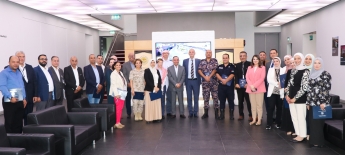 Successful Completion of the "Enhancing Organizational Resilience" Course
Successful Completion of the "Enhancing Organizational Resilience" CourseCMDR COE and the National Center for Security and Crises Management in Jordan, empower 15 Ministries with Essential Risk Management Skills
» read more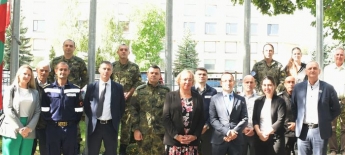 Preliminary Planning Meeting for Emergency Management Exercise
Preliminary Planning Meeting for Emergency Management ExerciseUpcoming in next year Ex Bulgaria 25
» read more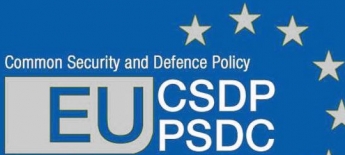 Workshop on assessing and monitoring
Workshop on assessing and monitoring CSDP military training requirements for a discipline
» read more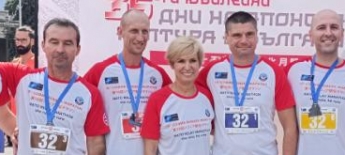 Sportive spirit and motivation at the Ekiden Marathon
Sportive spirit and motivation at the Ekiden MarathonCMDR COE Team led by Colonel Kamen Ivanov traditionally attended the annual Ekiden Marathon, held on the 6th September in Sofia.
» read more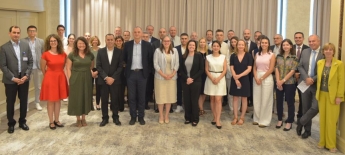 Climate and Security Action through Civil-Military Cooperation in the framework of NATO SPS Programme
Climate and Security Action through Civil-Military Cooperation in the framework of NATO SPS ProgrammeAdvanced Research Workshop on Climate and Security
» read more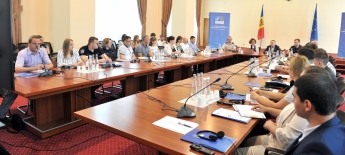 Moldovan Officials Successfully Complete Crisis Management and Disaster Response Course
Moldovan Officials Successfully Complete Crisis Management and Disaster Response CourseMobile Education and Training Team from CMDR COE Provides Advanced Training in Chisinau
» read more
